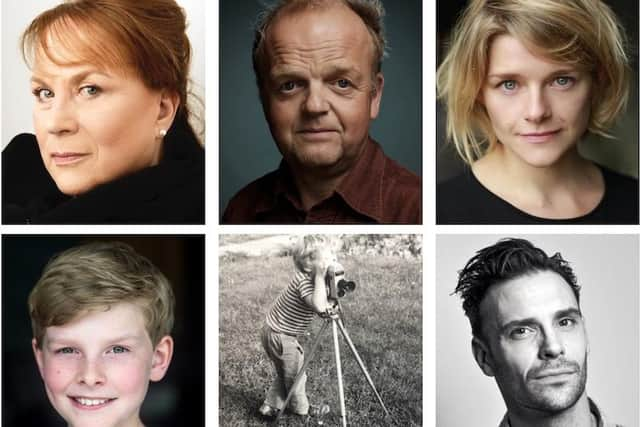Scottish cultural venues will need to look after Scottish talent more in wake of theatres blacklash


The Royal Lyceum Theatre in Edinburgh and Pitlochry Festival Theatre have had a bruising time of it in recent days since unveiling the cast of the first production which will emerge from a major new partnership.
In the court of social media, swift judgement was delivered on the hiring of only two Scottish actors for an 11-strong cast in a new audio play, one of the country’s biggest theatrical productions to be confirmed this year.
Advertisement
Hide AdAdvertisement
Hide AdBy Monday, the artistic directors of both venues were forced to apologise, particular for the handling of the casting announcement.
The Scottish film and TV industries have come under increasing scrutiny recent years over the hiring of non-Scottish actors.
It has been particularly notable how many movies set in Scotland have looked elsewhere for their lead actors, including Jessie Buckley and Saoirse Ronan, the Irish stars of Wild Rose and Mary Queen of Scots, American actor Chris Pine playing Robert the Bruce in Outlaw King and English actress Agyness Deyn in Sunset Song.
Questions have also been asked about high-profile TV shows like the Glasgow-set drama series The Nest, which featured English actress Sophie Rundle starring opposite Martin Compston.
Even two of the drama series made in Scotland during the pandemic, Trident thriller Vigil and maritime murder mystery series Annika, will feature English leads, Suranne Jones and Nicola Walker.


The two under-fire theatres have gone to great lengths to publicise their new “Sound Stage” series, which will see eight plays created and launched between March and October.
But last week’s announcement of a cast for Angela, Mark Ravenhill’s new play, badly backfired.
Advertisement
Hide AdAdvertisement
Hide AdThey were accused of making a "gross error in hiring the likes of Darling Buds of May star Pam Ferris, The Hunger Games star Toby Jones and Call the Midwife and Luther star Matti Houghton and of “a complete dismissal and betrayal" of the available acting talent in Scotland.
An initial defence on the basis that the vast majority of those involved in the entire season of plays would be Scottish seemed to miss the point entirely.
With Scottish theatre and its workforce still embroiled in the industry’s biggest ever crisis, did these theatres think about how this casting announcement would play out with out of work Scottish actors?
Given the chance to turn back the clock, David Greig, the Royal Lyceum’s artistic director, and Elizabeth Newman, who holds the same role at Pitlochry Festival Theatre, would be a lot more clear in exactly what they are doing – and indeed what they have done – in response to the pandemic.
The bitter irony for both Greig and Newman is that they have appeared to be two of the most active theatre directors since their venues were ordered to close. At times it has been genuinely hard to keep up with their announcements and initiatives – but that has counted for little over the last few days. They will have learned some harsh lessons about how their choices are now viewed within the industry.
These venues, and many others across the Scottish cultural scene, will need to take much more care in how they look after Scottish talent at every level in future.
A message from the Editor:
Thank you for reading this article. We're more reliant on your support than ever as the shift in consumer habits brought about by coronavirus impacts our advertisers.
If you haven't already, please consider supporting our trusted, fact-checked journalism by taking out a digital subscription.
Joy Yates
Editorial Director
Comments
Want to join the conversation? Please or to comment on this article.